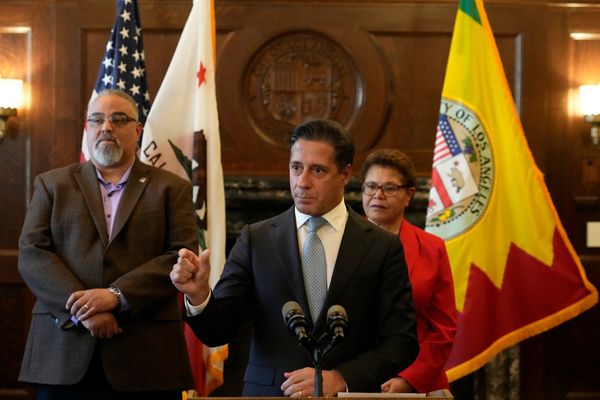
Retail crime is plaguing stores across the U.K., costing them billions in lost sales and increased security measures.
The fight against crimes like shoplifting are amping up in response, and now a group of Britain’s biggest retailers is pouring £600,000 ($750,000) into a new police project to crack down on organized crime gangs, who are believed to be at the center of retail theft activities.
As part of the new effort, dubbed Project Pegasus, police officers will scan through CCTV camera images of shoplifters while using facial recognition software to help identify the offenders, The Times reported Sunday. Some of the participants of the project include John Lewis, Co-op, Tesco and Sainsbury’s.
Other efforts by the government could see a national shoplifting database to track those committing such offenses, according to policing minister Chris Philp, The Times said. Philp has told the police to have a zero-tolerance policy towards shoplifting.
Katy Bourne, the Police and Crime Commissioner for Sussex, said Project Pegasus would be a “game-changer” as it would tackle the root of the theft problem.
“It’ll be a game changer for policing because for the first time ever, policing will get a complete picture across the country of where these gangs are hitting different areas and they’ll have that data and intelligence to be able to put that out to local police forces to go after those gangs,” Bourne told The Times.
Sainsbury's confirmed that it was involved in Project Pegasus, but directed Fortune to Bourne for further details. John Lewis also confirmed its participation.
"While there's no silver bullet for tackling retail crime, we welcome this significant step forward," a spokesperson for the John Lewis Partnership said: "Retail crime is not victimless, it has an impact on Partners, customers and indeed prices."
Tesco and Co-op didn’t immediately return Fortune’s request for comment; nor did Philp and Bourne’s offices.
The cost of shoplifting
Britain’s cost-of-living crisis and surging food inflation in recent years have made it harder for people to make ends meet, leading many to resort to crime as a way to cope with harsh economic conditions. Supermarket chains faced price increases from their suppliers, added costs that they then passed on to consumers. This put them on the front-line of the growing retail theft problem.
The phenomenon has raised concerns among some of the industry’s top executives. The chairman of U.K. retailer Asda, Stuart Rose, told The Telegraph earlier this month that shoplifting had in effect been “decriminalized” given the lack of resources and action that had been taken to curb it.
John Lewis's chair Sharon White recently raised the alarm on high streets becoming "looting grounds," and called for government intervention to revitalize them.
Ken Murphy, Tesco’s CEO, also spoke out last week about how crime in its stores was starting to threaten the safety of its staff. He noted an uptick in verbal and physical assault by customers against store workers and said the company had spent about £44 million ($55.56 million) over four years to bolster Tesco’s security measures.
The monetary impact of retail crime reflects the gravity of the issue.
Instances of retail theft had climbed 26% across the 10 biggest cities in the U.K. in 2022, according to trade body British Retail Consortium. In some cities, that figure had jumped as much as 68%, showing the sharp increase in shoplifting cases. Last year, such crimes cost retailers £1.76 billion ($2.22 billion), BRC found, with hundreds of millions gone in lost sales and millions more spent in preventative measures.
Creative crack-down on retail theft
As crime has risen in those places that the average Brit shops, retailers have tried to come up with unique ways to prevent shoplifting.
Last month, John Lewis and Waitrose stores said they would offer free beverages and, in some cases, even discounted food items to police officers. The measure are meant to help John Lewis and Waitrose build relationships with the local police by bringing them into stores, which in turn could help reduce crime.
Waitrose had also tried “love-bombing” customers by being more attentive to their needs, such as by offering help at self check-out counters, in order to deter shoplifting.
Meanwhile, Co-op said it would have undercover guards patrolling the store to make sure shoplifters are caught in the act and discouraged from repeating it in the future.







